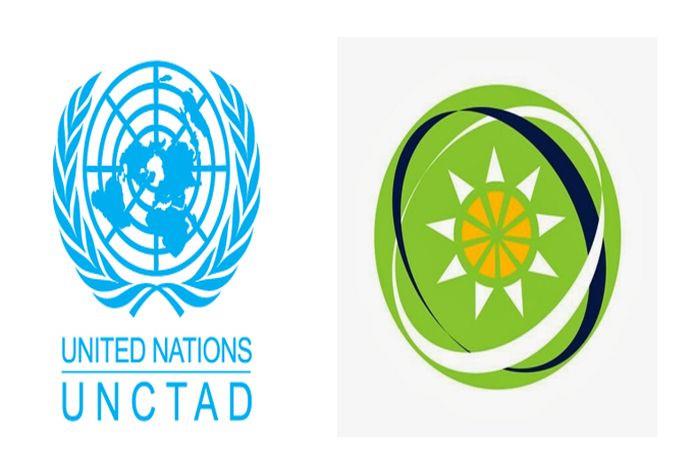
UNCTAD OECS Reinforce Collaboration
SWITZERLAND / ANTIGUA – The United Nations Conference on Trade and Development (UNCTAD) and the Organization of Eastern Caribbean States (OECS), have been collaborating on several initiatives to promote sustainable economic development in the Eastern Caribbean region.
An important meeting occurred on 4 May 2023 to discuss the status of the collaboration. The OECS delegation was led by director-general H.E. Dr Didacus Jules and ambassador H.E. Colin Trevor Murdoch.
One of the key areas of collaboration between UNCTAD and OECS has been on promoting trade and investment in the region. UNCTAD is providing technical assistance to OECS member states to help them improve their trade policies and regulations, as well as to identify and promote new trade and investment opportunities. This includes support for the development of export strategies and the implementation of trade facilitation measures, such as improving customs procedures and reducing non-tariff barriers.
In addition to their work on trade and investment, UNCTAD and OECS have also collaborated on initiatives to promote sustainable development and resilience in the face of global challenges such as climate change and the COVID-19 pandemic. This includes support for the development of green industries and renewable energy, as well as efforts to promote inclusive and sustainable economic growth that benefits all segments of society.
CITES (the Convention on International Trade in Endangered Species of Wild Fauna and Flora) was also represented since CITES and OECS have collaborated on a number of initiatives to promote the conservation and sustainable use of wildlife in the Caribbean region.
One such initiative is the Caribbean Marine Biodiversity Program, which is an important regional initiative that reflects a shared commitment to promoting sustainable development and the conservation of marine biodiversity in the Caribbean.
Antigua and Barbuda represented at the meeting
Antigua and Barbuda was specifically represented at this meeting by H.E. Boris Latour, ambassador and permanent representative of Antigua and Barbuda to the United Nations Office in Geneva, assisted by his deputy permanent Representative, Timothée Bauer.
It was the occasion for ambassador Latour, recently appointed in Geneva, to meet with UNCTAD and CITES teams composed -among others- of Ivonne Higuero, Juan Carlos Vasquez, Claudia Contreras, and David Vivas Eugui.
During this meeting, it was highlighted that the blue economy has always been the key priority for sustainable economic growth. In this respect, the sustainable use of ocean resources for economic growth, improved livelihoods, and job creation while preserving the health of marine ecosystems, is of essence for Antigua and Barbuda.
As an example, Queen Conch is an important commercial fishery in Antigua and Barbuda, and it is a valuable source of income and food for local communities.
In recent years, there have been concerns about the sustainability of the Queen Conch fishery in Antigua and Barbuda, due to overfishing and other factors. As a result, the government has implemented measures to manage the fishery and ensure its long-term viability. These measures include limits on the number and size of Queen Conch that can be harvested, restrictions on fishing in certain areas, and regulations on the sale and export of Queen Conch.
Despite these efforts, the Queen Conch fishery in OECS countries continues to face challenges, including poaching and illegal trade, as well as the impacts of climate change and habitat degradation. As a result, there is a need for continued management and conservation efforts to ensure the sustainability of this important fishery.
Moreover, the blue economy can also support the development of niche luxury products that are made from marine resources, such as high-end cosmetics and spa products made from seaweed and other marine plants. These products can benefit from the natural ingredients and unique properties of marine resources, as well as their sustainable and eco-friendly characteristics.
However, it is important to note that the development of a blue economy that supports the luxury industry should be done in a sustainable and responsible manner, to ensure the long-term health of the marine environment and the well-being of local communities. This requires careful management and conservation of marine resources, as well as the adoption of sustainable practices and technologies in the luxury industry.
In relation to the blue economy, the main challenges Antigua and Barbuda is facing are the following:
Sustainable fisheries management. Antigua and Barbuda is prioritizing the sustainable management of its fisheries resources to ensure the long-term viability of the fishing industry and the preservation of marine biodiversity.
Coastal and marine tourism: Antigua and Barbuda is investing in the development of sustainable coastal and marine tourism, including the promotion of eco-tourism and the conservation of marine habitats.
Renewable energy: Antigua and Barbuda is investing in renewable energy, including offshore wind and solar energy projects, to reduce the country's dependence on fossil fuels and promote a more sustainable energy future.
Marine conservation and protection: Antigua and Barbuda is committed to the conservation and protection of its marine ecosystems, including the establishment of marine protected areas and the development of sustainable coastal and marine infrastructure.
Overall, Antigua and Barbuda's priorities regarding the blue economy are aligned with the United Nations' Sustainable Development Goals (SDGs) and the principles of sustainable development, with a focus on balancing economic development with environmental protection and social inclusiveness.


Legal Disclaimer:
MENAFN provides the
information “as is” without warranty of any kind. We do not accept
any responsibility or liability for the accuracy, content, images,
videos, licenses, completeness, legality, or reliability of the information
contained in this article. If you have any complaints or copyright
issues related to this article, kindly contact the provider above.


















Comments
No comment